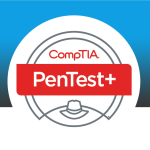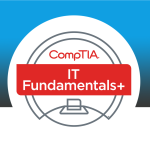Overview
The CompTIA A+(A plus) certification training course is created for all entry-level and aspiring IT professionals to validate their skills and knowledge in the IT domain. The certification course is made for learners to properly understand the hardware and software technologies that they will be working with so that they can support various IT infrastructures. Organizations often look for this certification as a marker and validation of the prospective employee’s skills. The certification has two examinations that candidates need to clear to become certified CompTIA A+ professionals
Benefits
- Candidates who are completing this certificate course gain worldwide recognition after obtaining their certification. They learn more about the core skills required for their jobs, such as network and application security to support IT, troubleshooting, the configuration of multiple operating systems such as Windows, Linux, and more.
- The course revolves around supporting basic IT infrastructures both with hardware and software programs and applications.
- Candidates of this certification training course also learn about the best practices to implement when it comes to change management, scripting, and documentation. The course also covers how to perform basic backup and recovery for data, among various other data management practices.
The Main Topic of the Course
- Module 1: Mobile Devices
- Module 2: Network
- Module 3: Hardware
- Module 4: Virtualization & Cloud
- Module 5:HW & Network Troubleshooting
- Module 6:operating system
- Module 7:security
- Module 8:software troubleshooting
- Module 9:operational procedure
Course Requirements
- There are no specific prerequisites required to attend CompTIA IT Fundamentals training.
Exam requirements
- There are no specific prerequisites required to attend CompTIA IT Fundamentals Exam
LAB Requirement
- It is recommended to have LAB in this course
Course Outlines and Training Plan
Module 1: Mobile Devices
- Given a scenario, install and configure laptop hardware and components
- Given a scenario, install components within the display of a laptop
- Given a scenario, use appropriate laptop features
- Compare and contrast characteristics of various types of other mobile devices
- Given a scenario, connect and configure accessories and ports of other mobile devices
- Given a scenario, configure basic mobile device network connectivity and application support
- Given a scenario, use methods to perform mobile device synchronization
Module 2: Network
- Compare and contrast TCP and UDP ports, protocols, and their purpose
- Compare and contrast common networking hardware devices
- Given a scenario, install and configure a basic wired/wireless SOHO network
- Compare and contrast wireless networking protocols
- Summarize the properties and purposes of services provided by networked hosts
- Explain common network configuration concepts
- Compare and contrast Internet connection types, network types, and their features
- Given a scenario, use appropriate networking tools
Module 3: Hardware
- Explain basic cable types, features, and their purposes
- Identify common connector types
- Given a scenario, install RAM types
- Given a scenario, select, install and configure storage devices
- Given a scenario, install and configure motherboards, CPUs, and add-on cards
- Explain the purposes and uses of various peripheral types
- Summarize power supply types and features
- Given a scenario, select and configure appropriate components for a custom PC configuration to meet customer specifications or needs
- Given a scenario, install and configure common devices
- Given a scenario, configure SOHO multifunction devices/printers and settings
- Given a scenario, install and maintain various print technologies
Module 4: Virtualization & Cloud
- Compare and contrast cloud computing concepts
- Given a scenario, set up and configure client-side virtualization
Module 5: HW & Network Troubleshooting
- Given a scenario, use the best practice methodology to resolve problems
- Given a scenario, troubleshoot problems related to motherboards, RAM, CPUs, and power
- Given a scenario, troubleshoot hard drives and RAID arrays
- Given a scenario, troubleshoot video, projector, and display issues
- Given a scenario, troubleshoot common mobile device issues while adhering to the appropriate procedures
- Given a scenario, troubleshoot printers
- Given a scenario, troubleshoot common wired and wireless network problems
Module 6: Operating System
- Install and support Windows OS including command line & client support. System configuration imaging and troubleshooting for Mac OS, Chrome OS, Android, and Linux OS
Module7: Security
- Identify and protect against security vulnerabilities for devices and their network connections
Module8: SW Troubleshooting
- Troubleshoot PC and mobile device issues including common OS, malware, and security issues
Module 9: Operational Procedures
- Follow best practices for safety, environmental impacts, and communication and professionalism






